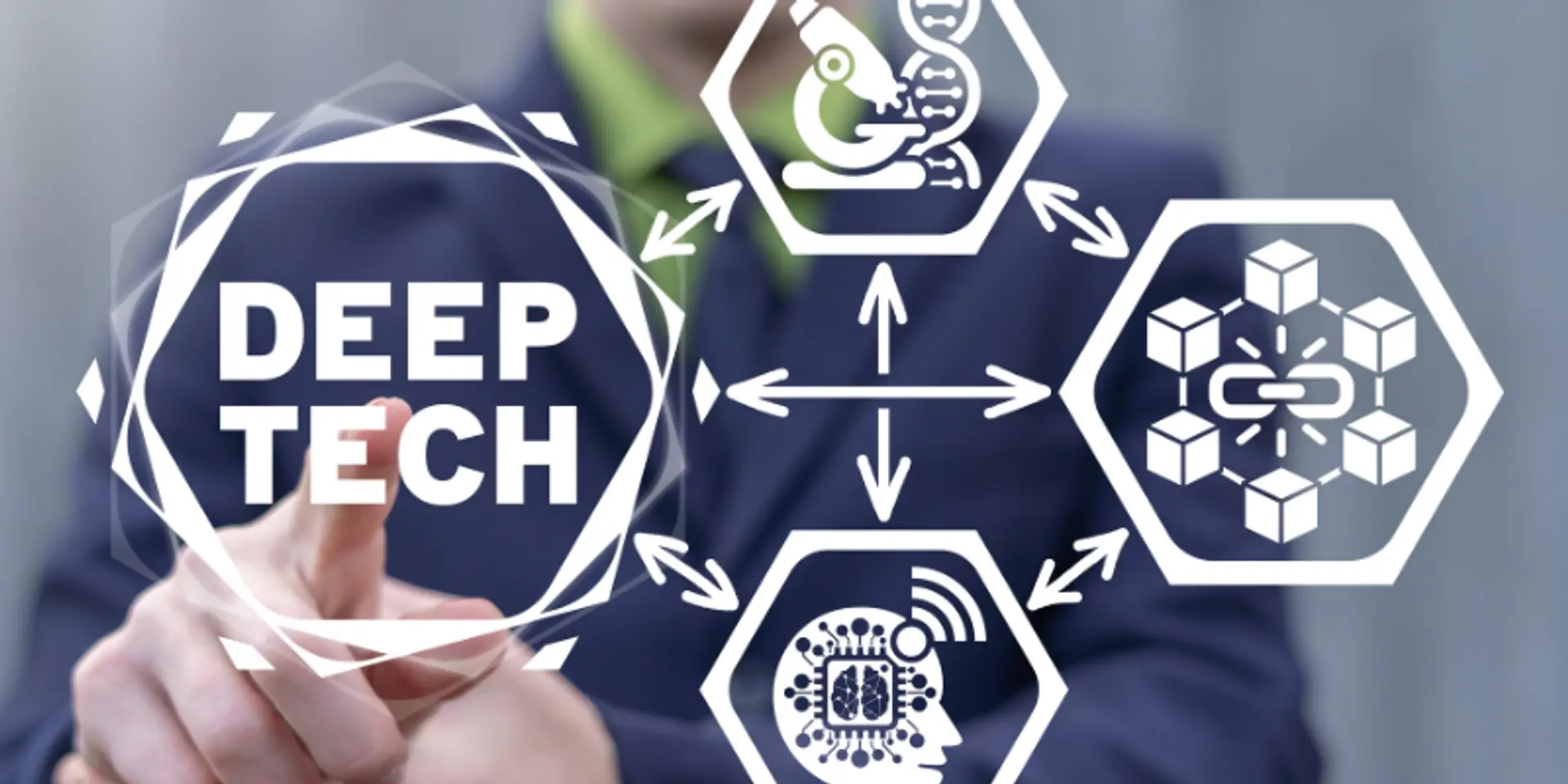Why future-proofing industries depend on AI-powered deep tech ventures
While AI continues to shape industries, it's not just changing existing ones but also opening up entirely new sectors.
Artificial Intelligence (AI) was once a niche technology but, in the last few years, it has flooded every part of our lives. Even a common person can now easily use AI-powered technologies. Since AI is so widely available, businesses cannot avoid implementing it. Businesses must fit AI into their operations and strategy to future-proof their industries.
The introduction of personal computers and the internet can be compared to this. Industries that did not implement digital strategies at the time soon found themselves out of business. Many Fortune 500 companies from 20 to 25 years ago are no longer included in the list. New-age businesses that adjusted to the digital revolution took their position. Likewise, companies that disregard AI now run the risk of falling behind in a rapidly changing market.
AI as a tool for transformation
AI is not just a business but a tool that can be applied across all industries. It facilitates organisations to perform tasks faster, more efficiently and innovatively. Beyond improving existing processes, AI opens doors to possibilities previously unimaginable. Broadly, AI’s impact can be classified into two categories—disrupting existing industries and creating entirely new ones.
Disrupting existing industries
AI is disrupting both deep tech and non-deep tech industries. Whether creative writing or financial analysis, AI increases productivity and efficiency. AI-powered businesses can achieve better outcomes faster than their counterparts, leading to a significant competitive edge. Organising an effective AI strategy has become crucial for companies to stay relevant.
In deep tech industries, AI plays an even more valuable role. One major impact is its ability to reduce the knowledge gap. Building a deep tech venture requires high-quality R&D, which depends on infrastructure, knowledge, and talent.
AI helps level the playing field by making specialised knowledge more accessible. Earlier, accessing such knowledge required attending elite universities. Today, AI can summarise complex subjects and make them understandable, enabling individuals from diverse backgrounds to participate in high-quality R&D.
The technology also reduces the cost of research. Tasks that once required large teams of scientists can now be automated. For example, tools like Google’s Notebook LLM can summarise research papers and generate insights, freeing researchers from administrative burdens. This efficiency accelerates R&D, allowing AI-powered deep tech ventures to reach the market faster than traditional companies.
AI is also creating new categories. In healthcare, for instance, AI has revolutionised drug discovery. Traditional methods of drug discovery were time-consuming and expensive, requiring researchers to analyse countless molecules and run complex simulations. AI-powered solutions now speed up this process, reducing costs and enabling pharmaceutical companies to develop new drugs more efficiently.
It is also transforming diagnostics. For example, cancer prognosis tests, which once required expensive genetic sequencing in centralised labs, can now be performed using AI-powered tools. Startups like Signatur Biosciences use AI to parallelise PCR reactions, making tests more affordable and accessible. AI-powered diagnostics also leverage everyday devices like phone cameras to perform complex analyses, further lowering costs and expanding access.
Besides healthcare, AI is driving innovation in fields like space tech. Access to space has traditionally been expensive due to the need for high-end equipment. AI-powered analytics now allow lower-cost instruments to perform tasks that previously required premium technology. For instance, AI can enable satellites to process data on the edge, reducing the need for heavy payloads and centralised processing. This capability is essential for applications in agriculture, climate monitoring, and defence.
Furthermore, the global push for decarbonisation has brought clean energy technologies to the forefront. AI’s ability to optimise energy consumption, forecast renewable energy outputs, and manage energy storage solutions accelerates the shift to sustainable energy models.
AI opening new sectors
While AI continues to shape industries, it's not just changing existing ones but also opening up entirely new sectors. With increasing AI adoption, industries that provide the necessary infrastructure to support these advancements are also experiencing significant growth.
For instance, Nvidia manufactures high-performance processors that power AI systems, and as AI becomes more widely integrated, the demand for Nvidia’s products continues to rise. This highlights how AI is not only transforming the industries it directly impacts but also opening up new opportunities for businesses in supporting sectors.
One key example is the rise of on-edge computing, which allows AI processing to happen locally, without relying on centralised servers. This technology is important in defence and autonomous systems, where quick, localised decision-making is critical.
As the saying goes, "During a gold rush, sell the shovel," in today’s world, companies that provide the infrastructure and tools needed to support AI are set to benefit in much the same way.
Businesses need to start adopting AI to stay competitive. It’s becoming essential. Begin by identifying areas where AI can improve efficiency, enhance customer experiences, or create new products. Start small, test the tools, and scale as you see results. Implementing AI now is key to remaining relevant and unlocking future growth.
Ankit Anand, Founding Partner at Riceberg Ventures
Edited by Suman Singh
(Disclaimer: The views and opinions expressed in this article are those of the author and do not necessarily reflect the views of YourStory.)









